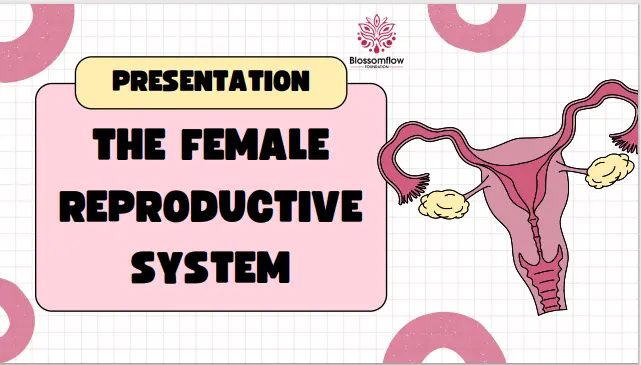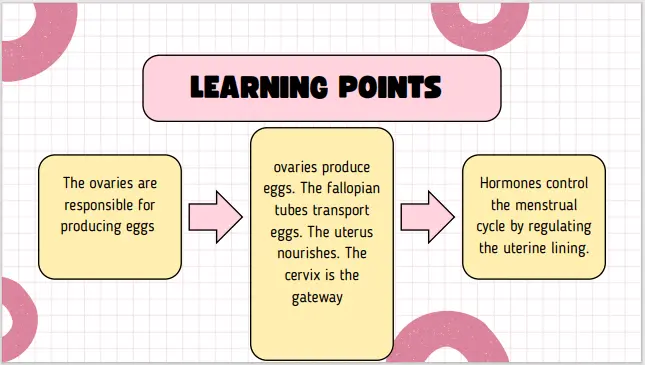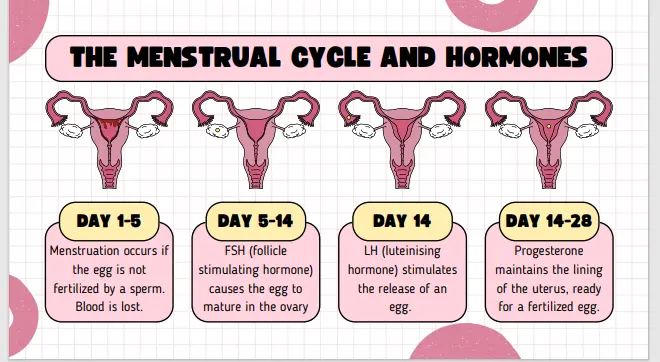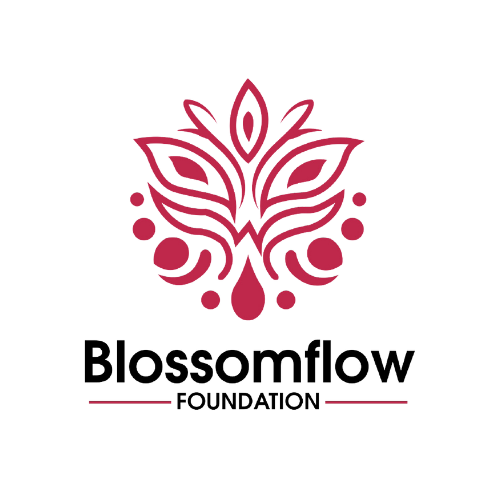
Breaking the Stigma: Understanding the Female Reproductive System and Combating Period Poverty
The Female reproductive system plays a crucial role in reproduction and overall health, yet many women and girls—especially in underserved communities—lack essential knowledge about their reproductive health. This knowledge gap, coupled with limited access to menstrual hygiene products, contributes to a widespread issue known as period poverty. At Blossomflow, we are dedicated to promoting **menstrual health education* and advocating for the eradication of period poverty. In this post, we’ll explore the functions of the female reproductive system, the challenges of inadequate menstrual resources, and how we can work together to empower women and girls globally.
Understanding the Female Reproductive System
The female reproductive system consists of several key organs, each playing a vital role in reproductive health:

Understanding the menstrual cycle is key to recognizing signs of reproductive health and breaking period stigma.
- Ovaries: These small, almond-shaped organs produce eggs and secrete hormones like estrogen and progesterone, which regulate the menstrual cycle\and support overall reproductive health.
- Fallopian Tubes: These tubes are the pathways through which eggs travel from the ovaries to the uterus. Fertilization typically occurs here, making them crucial for conception.
- Uterus: Also known as the womb, the uterus is a muscular organ that nurtures a fertilized egg as it develops into a fetus. If fertilization does not occur, the uterine lining sheds, resulting in menstruation.
- Cervix and Vagina: The cervix connects the uterus to the vagina, which serves as the channel for menstrual blood and childbirth.
The Menstrual Cycle: Phases and Hormonal Changes
The menstrual cycle is a complex process governed by the interplay of hormones produced by the ovaries and the pituitary gland. It consists of four main phases:
- Menstrual Phase (Days 1-5): The cycle begins with the shedding of the uterine lining, accompanied by bleeding. This marks the start of a new cycle.
- Follicular Phase (Days 5-14): During this phase, follicle-stimulating hormone (FSH) stimulates the growth of ovarian follicles. Rising estrogen levels prepare the uterus for a possible pregnancy.
- Ovulation (Day 14): A surge in luteinizing hormone (LH) triggers the release of a mature egg, making this the most fertile phase.
- Luteal Phase (Days 14-28): Progesterone maintains the thickened uterine lining. If the egg is not fertilized, progesterone levels drop, leading to menstruation and the start of a new cycle.

Knowing the phases of the menstrual cycle helps women manage their health better. Blossomflow is committed to educating girls and women about menstrual health and reducing period poverty.
Understanding these phases is essential for recognizing the signs of a healthy menstrual cycle and identifying potential health issues.
The Impact of Period Poverty on Women and Girls
Period poverty refers to the lack of access to menstrual products, education, and facilities. It affects millions of women and girls worldwide, leading to health risks, school absenteeism, and social stigma. In many communities, girls miss school during their periods, which can negatively impact their education and future opportunities.
How Blossomflow is Making a Difference
The Blossomflow Foundation is committed to combating period poverty through the distribution of sanitary pads and the provision of comprehensive menstrual health education in underserved communities. Our programs aim to:
- Provide Access to Menstrual Products: We distribute sanitary pads and hygiene kits to girls and women in need.
- Offer Educational Workshops: We conduct workshops to educate girls about the menstrual cycle, hygiene practices, and reproductive health.
- Advocate for Policy Change: We work to influence policies that support menstrual health education and access to menstrual products.
How Period Poverty Affects Mental Health
Period poverty not only impacts physical health but also mental well-being. The stigma and shame associated with menstruation can lead to anxiety, depression, and low self-esteem. By ensuring access to menstrual products and education, we can help reduce these mental health challenges and empower women and girls to live with dignity.
How You Can Support the Fight Against Period Poverty
Join us in our mission to end period poverty and promote menstrual health education. Your support—whether through donations, volunteering, or sharing our message—can significantly impact the lives of those who lack access to these vital resources. Here are a few ways to get involved:
- Donate: Contribute to our cause by providing funds to purchase and distribute sanitary pads to girls and women in need.
- Volunteer: Participate in our educational workshops or help us organize events in your community.
- Advocate: Raise awareness about period poverty by sharing our message on social media or engaging in community discussions.
Visit our blog section to learn more about our initiatives and discover how you can get involved. Let’s break the stigma, provide necessary resources, and ensure that every woman and girl can manage her menstrual health with dignity and confidence.
All Categories
Recent Posts
Why SDG 4 Cannot Be Achieved Without Ending Period Poverty
Tags
Give them a helping hand
Every donation fuels our mission to combat period poverty. Your generosity brings us closer to menstrual equity.
+234-909-482-1642
inquiries@blossomflow.org




